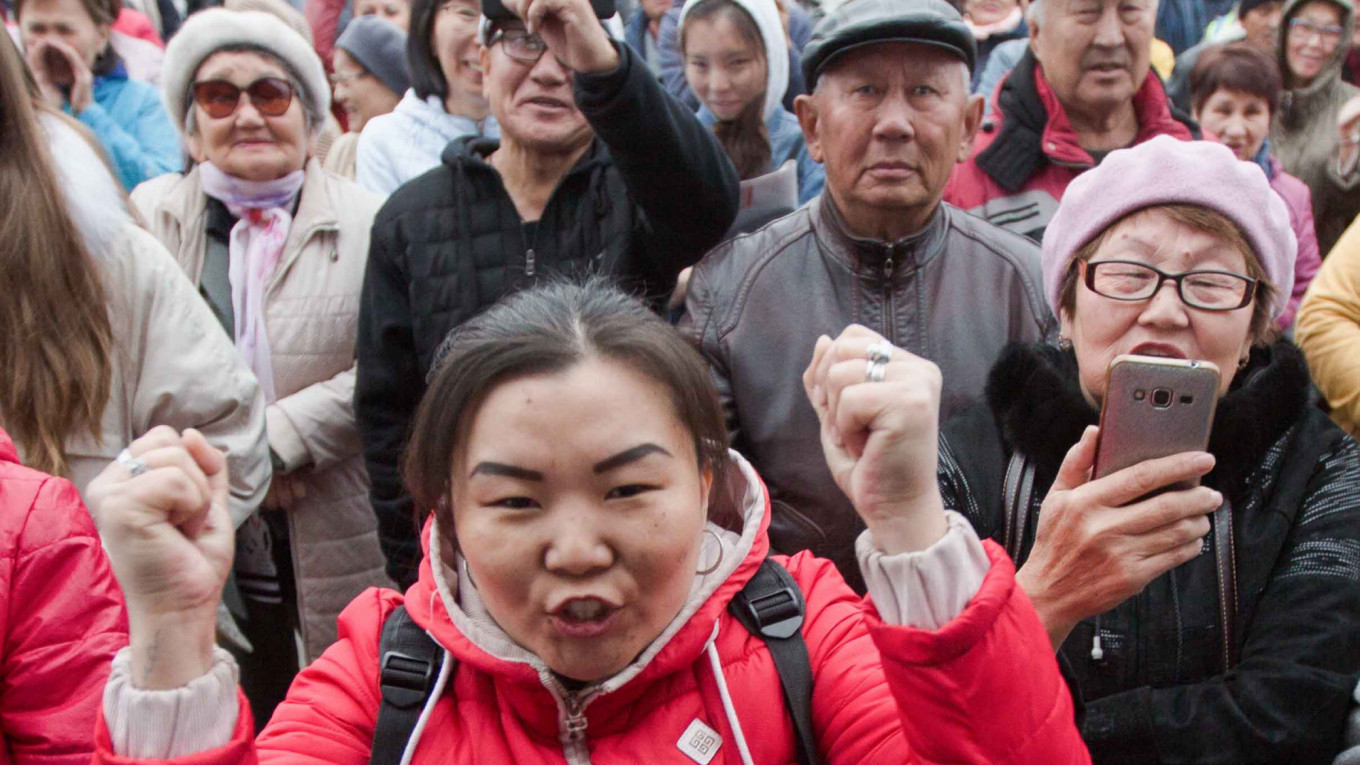In Buryatia, a Russian region that shares a border with Mongolia, the entire region knows exactly when the coronavirus appeared and who patient “number one” was.
Vadim Bredny, the rich owner of a popular retail store chain and a deputy in the city council of Ulan-Ude, flew in from Moscow on March 12. Eight days later he checked himself in at the local military hospital and was diagnosed with coronavirus on March 26. Since his diagnosis came after he was admitted, the hospital, which was not set up to handle coronavirus patients, sent all the other patients home.
His wife and daughters have also been admitted to another hospital after being infected by the coronavirus.
Rospotrebnadzor, Russia’s federal consumer protection watchdog, reported in the local media that after Bredny’s arrival in Ulan-Ude, he had direct contact with 232 people including at an event for bloggers and a meet-up with his constituents.
That news set off a firestorm of criticism in the local social media. One popular blogger wrote, “How irresponsible can you get? Traveling to the hotbed of the virus and then meeting with a lot of people. Of course, he won’t face any consequences, he’s a big wig.” The blogger called for a boycott of Bredny’s stores.
Alexei Makarkin, deputy director of the Center for Political Science in Moscow, told The Moscow Times that he believes the coronavirus pandemic is laying bare the class divide in Russian society.
“The line is between those who can fly to Europe and those who can’t. The virus has intensified the enmity between these two parts of society,” he said.
Another poster on social media wrote about Bredny, “I can’t even express how angry I am! He brought in this virus and now ordinary people are suffering from it!”
Soon the angry posts included the rumor that Bredny and his wife had been in Europe and should have self-isolated upon return. Bredny’s wife responded from her hospital bed with screen shots of her passport border stamps to prove that they had returned before self-isolation was mandated.
Although the regional head, Alexei Tsydenov, publicly thanked Bredny and his wife for “reacting responsibly and getting tested,” he later declined to comment on the case. Bredny and his family have been defended by other deputies, business colleagues and Metropolitan Savvaty of Ulan-Ude and Buryatia.
“We really think that they behaved responsibly. They didn’t try to hide it although they have enough money to pay someone off to say it was all just a respiratory infection,” the Metropolitan's spokesperson told The Moscow Times. A local journalist, Yevgeniya Baltatarova, told The Moscow Times that the Bredny family is a major donor to the Orthodox Church in the region.
Buryatia is not the only region in Russia where the first coronavirus patients have been bullied and attacked. In Bashkiria, the first coronavirus patient had been on a European cruise. In Ulyanovsk, the virus was brought in by a student who went to school in England, according to local media reports. Online bullying in these regions has an element of what Baltatarova called “class hatred.”
Abbas Gallyamov, an independent political scientist who formerly worked in the Russian government, said the coronavirus pandemic poses a risk to social and political stability in Russia.
“Today the greatest divide is between the ruling elite and average people, between rich and poor, between the capital and the regions. The virus is aggravating those tensions,” he said.
A Message from The Moscow Times:
Dear readers,
We are facing unprecedented challenges. Russia's Prosecutor General's Office has designated The Moscow Times as an "undesirable" organization, criminalizing our work and putting our staff at risk of prosecution. This follows our earlier unjust labeling as a "foreign agent."
These actions are direct attempts to silence independent journalism in Russia. The authorities claim our work "discredits the decisions of the Russian leadership." We see things differently: we strive to provide accurate, unbiased reporting on Russia.
We, the journalists of The Moscow Times, refuse to be silenced. But to continue our work, we need your help.
Your support, no matter how small, makes a world of difference. If you can, please support us monthly starting from just $2. It's quick to set up, and every contribution makes a significant impact.
By supporting The Moscow Times, you're defending open, independent journalism in the face of repression. Thank you for standing with us.
Remind me later.







